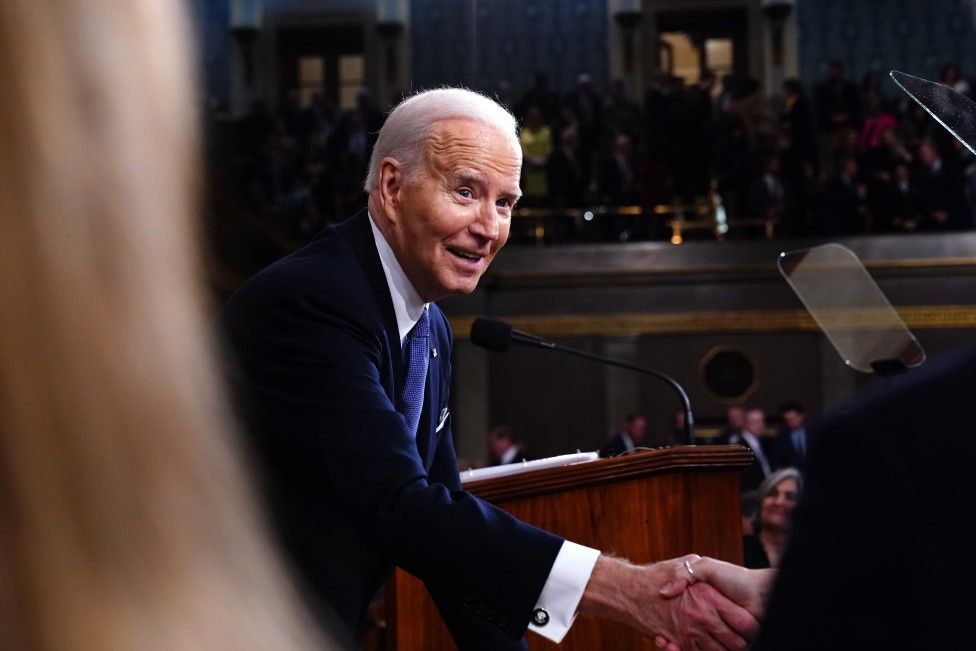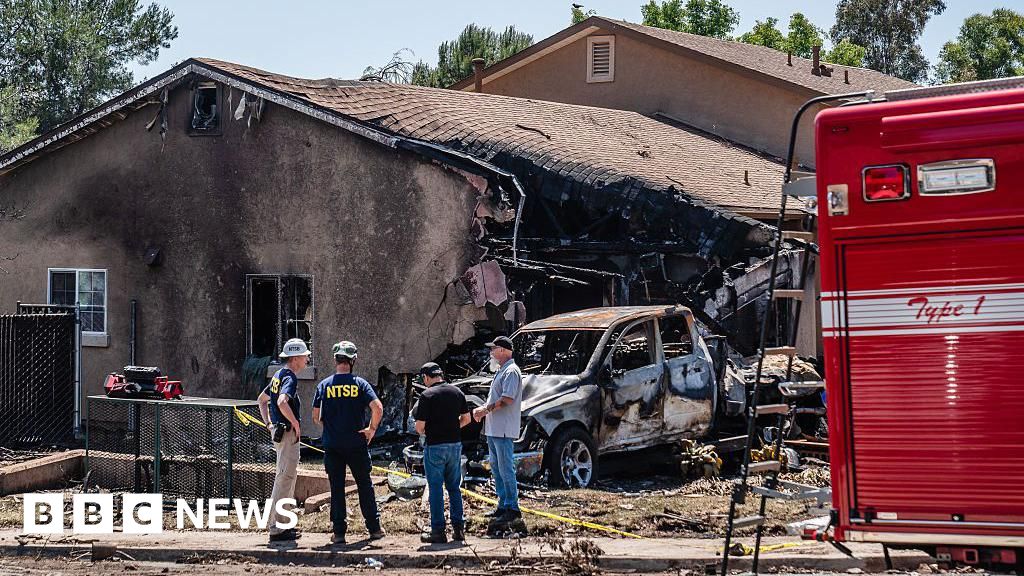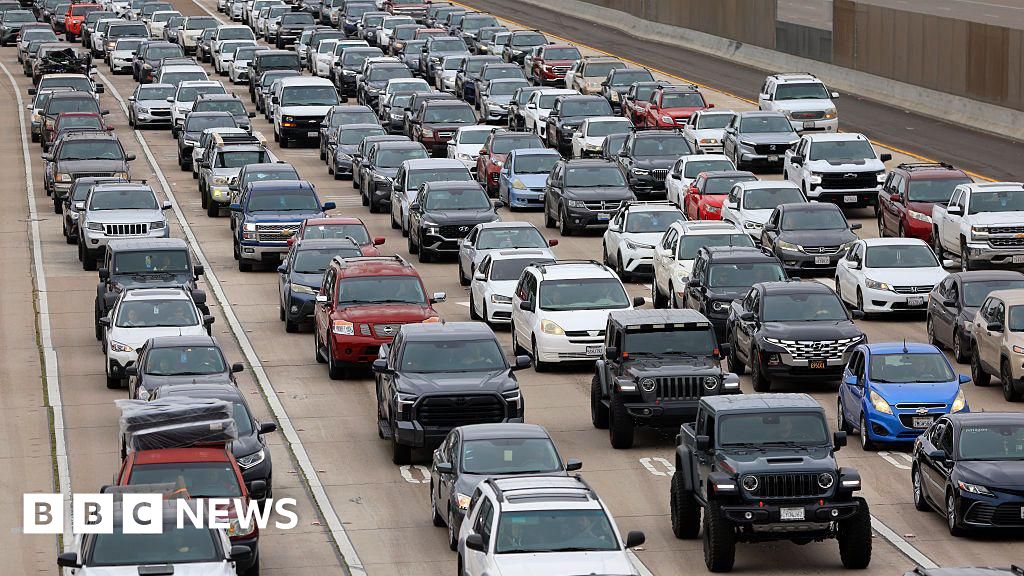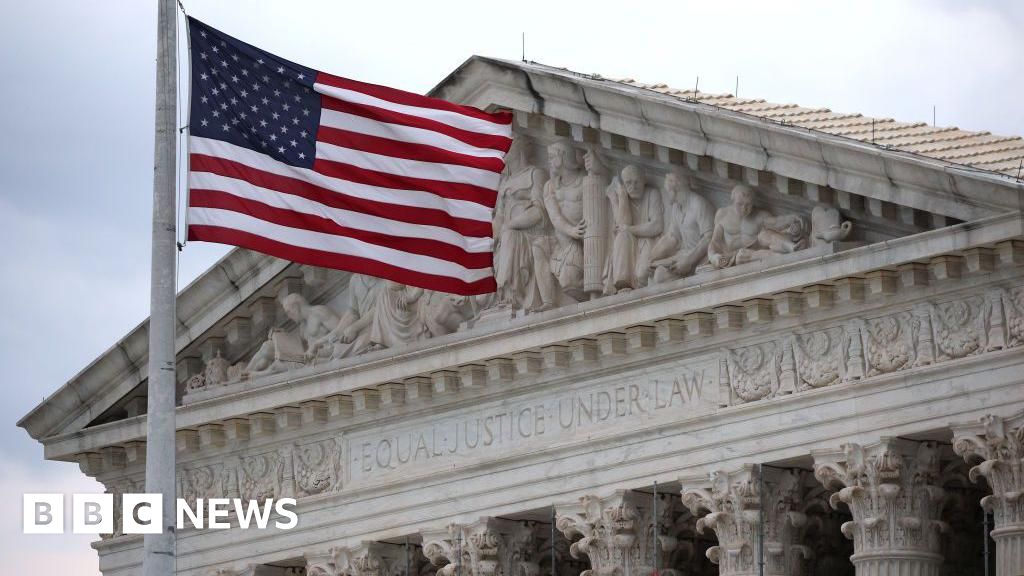ARTICLE AD BOX
 Image source, Getty Images
Image source, Getty Images
Foreign policy figured highly in Joe Biden's annual address to Congress, which highlighted US involvement in conflicts around the world. So how was his speech received in those places?
It was notable that the president chose to begin his State of the Union by discussing Ukraine. He later went on to spend a few minutes on the Israel-Hamas war and finished by talking about "standing up" to China.
We asked three BBC correspondents to analyse his comments in each area.
Nazi comparison will annoy Putin
By Sarah Rainsford, Eastern Europe correspondent
A year before the full-scale invasion of Ukraine, President Biden agreed with an interviewer that Vladimir Putin was a "killer", enraging the Kremlin. Three years later, Mr Biden has now compared him to Adolf Hitler.
In his State of the Union address, he referred to Hitler being "on the march" in 1941 in Europe and then said that the Russian leader was "on the march" himself, warning that Russian aggression would not stop at Ukraine.
His message to President Putin, he said in his speech, was simple. "We will not bow down."
The Russian leader has claimed, falsely, that his invasion of Ukraine is aimed at "de-Nazifying" Russia's neighbour and he has elevated the Soviet Union's defeat of Hitler in World War II to near-cult status. So Moscow won't like this comparison at all.
Image source, Getty Images
But Mr Biden wasn't addressing Russia alone. He stressed the urgent need for the US to continue supporting Ukraine as it battles to defend itself and he called on Congress to unblock the bill that would release the funding Kyiv needs.
I've heard politicians and analysts in Ukraine describe losing US financial backing as "catastrophic". The delay is already damaging, forcing soldiers to ration ammunition on the frontlines.
As Moscow smarts at the comparison with Nazi Germany, Ukraine will welcome a State of the Union speech that opened with a rallying cry for democracy and support for Kyiv. President Biden said the US wouldn't "walk away".
Such words are important and appreciated. But similar calls have been uttered before and all the time Ukraine is losing more territory and more soldiers.
Unease in China as Biden talks tough
By Laura Bicker, China correspondent
It's hard to know which candidate China would prefer as it watches the discord on display in Washington during the State of the Union.
The contrast with its own rubber-stamp parliament, the National People's Congress, is stark. Nearly 3,000 delegates are meeting in Beijing this week in the Great Hall of the People where speeches are watched with quiet nods, a reverent hush and unwavering approval from the Communist Party elite.
There will be a level of unease from China's business sector that President Biden sees the need to show how tough he will be on Beijing. He said he wanted "competition - not conflict" with China, but business leaders may ask what form that competition will take.
Image source, Getty Images
He has already expanded sanctions against China on a range of issues, from human rights abuses to its relations with Russia. Relations are also strained over China's behaviour in disputed areas of the South China Sea, its military intimidation of Taiwan and growing technological competition.
Beijing will not see Mr Biden's competitor as a more promising prospect. While president, Donald Trump started a trade war with China and recently threatened to impose a 60% tariff on Chinese goods if he wins in November.
But Beijing might like the idea of another Trump presidency. The Biden administration has built an alliance to counter the might of China and he has been clear that the US would defend Taiwan if China tried to take the self-governing island by force.
In contrast, Mr Trump has refused to say he would help Taiwan, which Beijing claims as its own territory.
China can exploit these differences in Washington and use them to appear as a safer, long-term diplomatic bet for countries around the world as the two compete for global influence.
By Yolande Knell, Middle East correspondent
President Biden called events of the past five months "gut-wrenching" in his address.
While he blamed Hamas for starting the Gaza war, he stressed the high civilian death toll among Palestinians and had a sharp message for Israel about the need to allow basic supplies to reach the besieged territory, amid UN warnings of mass starvation.
Aid, he said, "cannot be a secondary consideration or a bargaining chip. Protecting and saving innocent lives has to be a priority." This rebuke featured prominently in the Israeli media on Friday morning.
Driven by domestic politics in an election year - the need to show stronger American action - as well as deep humanitarian need, Mr Biden announced a plan for a new floating pier off Gaza to bring in food and basic supplies on ships via Cyprus.
In many ways, this ambitious idea - which the president was careful to say would not involve US military boots on the ground - is a measure of frustration with a key ally.
Israel hasn't officially responded to the plan but it has resisted using its own Mediterranean container port, Ashdod - 35km from northern Gaza, to bring in aid and refused to open more border crossings.

 1 year ago
38
1 year ago
38








 English (US) ·
English (US) ·